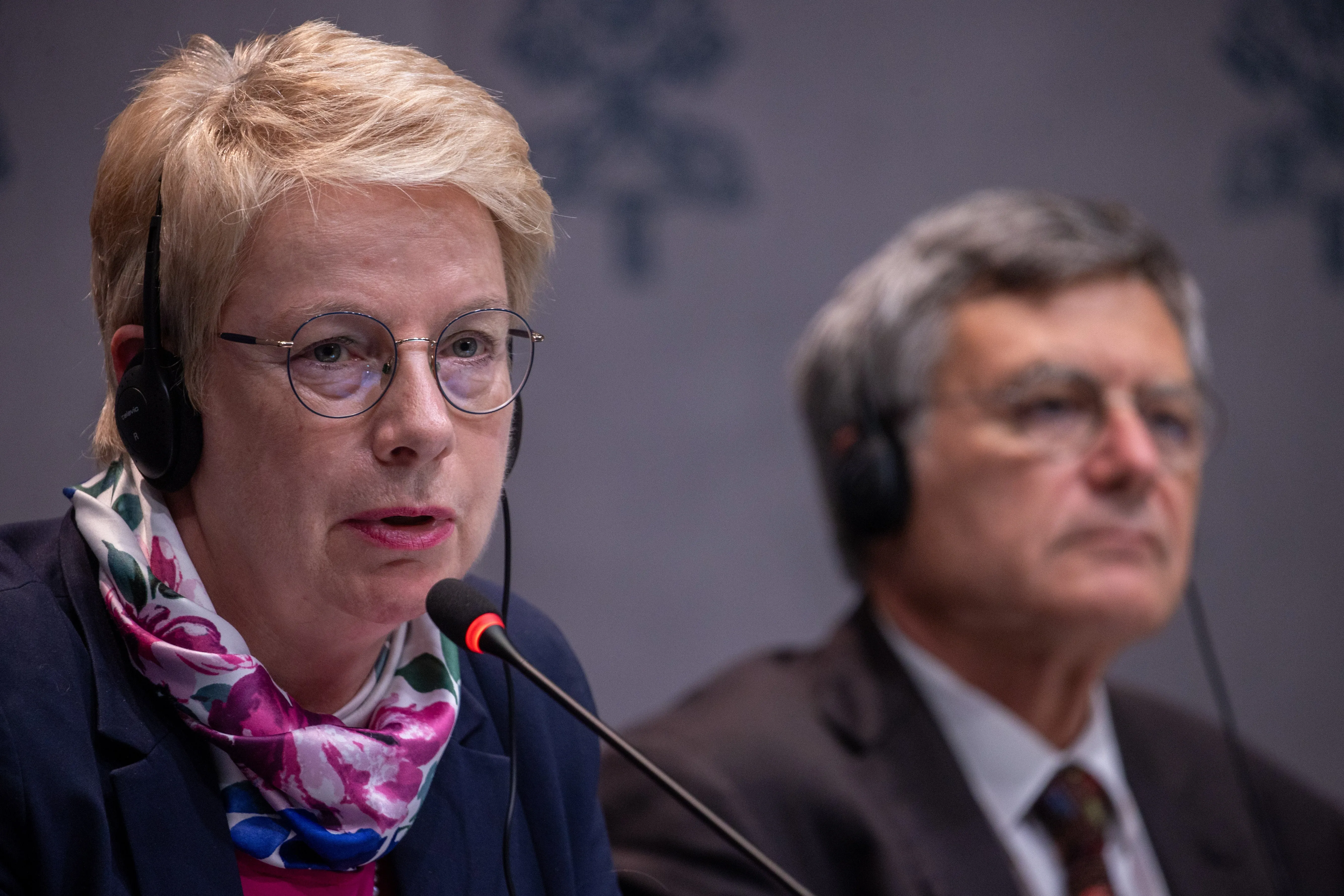But bigger changes, such as opening the diaconate to women or allowing exceptions to priestly celibacy, to cite two issues that were promoted publicly this month, appear off the table.
According to sources who have spoken to CNA, what’s left is a draft report that is generating disappointment in progressive quarters but very little buzz.
Titled “Communion, Mission, and Participation,” it’s a short document — 152 paragraphs, for the time being, covering about 47 pages. According to synod sources, it is divided into five parts.
The first part deals with the shared understanding of synodality and its theological principles. The second concerns what is called a “relational conversion.” The third part speaks of ecclesial discernment, decision-making processes, the culture of transparency, accountability, and evaluation. The fourth part seeks to understand how to cultivate the exchange of gifts in new ways. Finally, the fifth part speaks of formation in and for missionary synodality.
The synod’s final document, one delegate told CNA, appears to be strongly borrowed from the document on synodality that the International Theological Commission published in 2018, titled “Synodality in the Life and Mission of the Church.”
After reviewing it the synod delegates can propose amendments, which the assembly will discuss and vote on this Saturday.
Two-thirds of the assembly must approve a paragraph for it to be retained. In the past, if a paragraph did not reach even two-thirds, it would not be published. It was said that it did not represent synodal communion. Pope Francis has instead wanted each paragraph of the final document to be published and that votes for or against be indicated together with the paragraph.
Beyond the talks about healthy decentrality, the draft document addresses how this decentralization should be addressed. In particular, there is a paragraph that says that in a synodal Church, the decision-making competence of the bishop and of the bishop of Rome is “inalienable” while proposing some good practices to make the diocesan and parish council representative of all the people of God, women included.
Some describe the document as interlocutory rather than definitive. One bishop observed that “the document allows everyone to manage things as they wish.” But, he added, showing some disappointment, “So what were we discussing?”
If these are the results of two synodal stages in Rome and a three-year journey of dialogue and listening before that, it’s clear that many will be disappointed. There are no revolutions, but rather a call for a change of mentality in the Church grounded in the idea that synodality has always been present in the Church.








